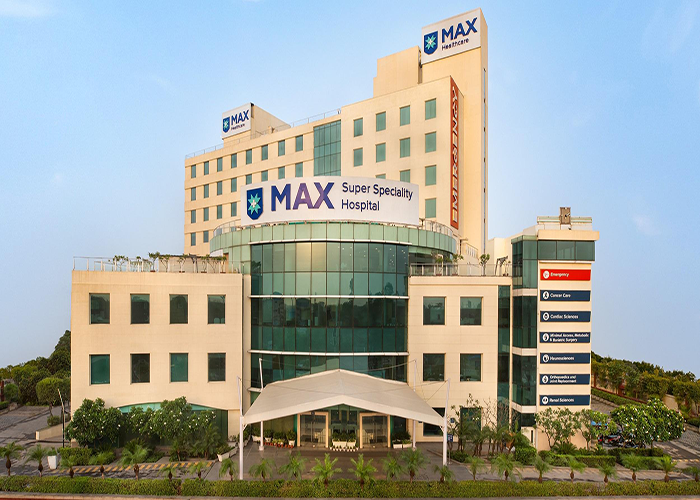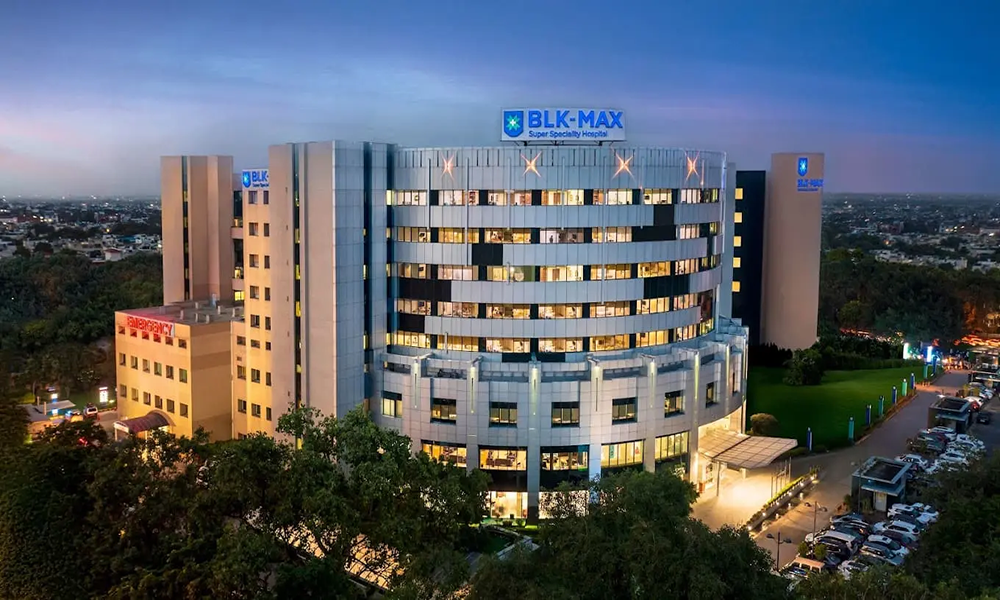Hospital Water Management Solutions: STP, ETP, WWTP, WTP, Industrial RO Systems for Clean and Sustainable Healthcare Operations

Maharashtra, home to major cities like Mumbai, Pune, and Nagpur, has emerged as a healthcare hub in western India. The state hosts numerous multi-specialty hospitals, medical colleges, and research institutions. As these establishments grow in number and scale, there is a corresponding surge in the need for clean water supply and wastewater management systems to ensure hygiene, prevent contamination, and meet regulatory norms.
Maharashtra, home to major cities like Mumbai, Pune, and Nagpur, has emerged as a healthcare hub in western India. The state hosts numerous multi-specialty hospitals, medical colleges, and research institutions. As these establishments grow in number and scale, there is a corresponding surge in the need for clean water supply and wastewater management systems to ensure hygiene, prevent contamination, and meet regulatory norms.
Hospitals Use Water Extensively Across Medical, Sanitary, Laboratory, and Support Service Functions Daily
Water plays a vital role in the functioning of any hospital. From maintaining sanitation to supporting life-saving treatments, clean and processed water is essential. Hospitals require water for autoclaving surgical tools, patient care, handwashing, cleaning, laundry, and even cooking and drinking purposes.
In diagnostic and pathology labs, ultra-pure water is used in tests and experiments, while boilers and HVAC systems also demand a steady supply of conditioned water. Thus, the hospital's daily operations are heavily dependent on water availability and quality, necessitating sophisticated treatment processes to meet both quantity and hygiene requirements.
Hospital Operations Generate High-Volume Wastewater Through Clinical, Sanitary, and Pharmaceutical Activities
Hospitals carry out a wide range of activities that inevitably lead to the generation of wastewater. Wastewater originates from toilets, surgical rooms, intensive care units, diagnostic labs, laundries, and kitchens. These effluents often contain biological waste, disinfectants, chemicals, pharmaceuticals, and detergents.
Water is the silent engine of hospital operations—sterilizing instruments, supporting patient hygiene, powering medical processes, and maintaining sterile environments. A reliable and safe water system is not just a utility, it's a foundational element of healthcare delivery. Without it, quality care and infection control cannot be sustained.
Pharmaceutical disposal, bodily fluids, chemical reagents from labs, and washing of contaminated materials also contribute to wastewater. Given the presence of pathogens, antibiotics, and toxic residues, untreated discharge can severely impact the environment. Thus, identifying sources and volumes of hospital-generated wastewater is crucial for planning efficient treatment mechanisms.
Hospitals Generate Diverse Wastewater Types, Including Pathogenic, Chemical, and Pharmaceutical Contaminants
The wastewater discharged by hospitals is a complex mixture of physical, biological, and chemical pollutants. It often contains blood, bodily fluids, used bandages, surgical waste, and pathogens from infected patients. Additionally, residues of pharmaceuticals such as antibiotics and cytotoxic drugs are commonly found in effluents.
Laundry water, waste from laboratories, radiology departments, and general cleaning activities contribute heavily to the overall wastewater load. These wastewaters vary in toxicity and volume, making their treatment challenging. Proper categorization and pre-treatment are essential before releasing or reusing the water, especially to avoid environmental contamination and health hazards.
Hospitals Use Dedicated STP and ETP Units for Safe and Compliant Wastewater Treatment
To handle such hazardous effluents, hospitals are required to set up Sewage Treatment Plants (STP) and Effluent Treatment Plants (ETP). STPs primarily manage domestic wastewater from toilets and kitchens, while ETPs focus on chemical-laden water from labs and ICUs.
These plants typically include filtration, biological treatment, chemical neutralization, and disinfection processes. Activated sludge, membrane bioreactors, and UV sterilizers are commonly used technologies. Post-treatment, the water can either be safely discharged or reused for non-potable purposes. Proper treatment not only ensures compliance with environmental norms but also supports public health and eco-conservation.
Hospitals Adopt Modern Technologies Like RO, MBR, and UV for Wastewater Reuse and Safety
With increasing pressure to conserve resources, hospitals are now leveraging advanced technologies like Reverse Osmosis (RO), Membrane Bioreactor (MBR), and Ultra-Filtration (UF) to treat and reuse wastewater. These systems enhance the purification process, enabling the recovery of water for non-critical uses.
Recycled water is often reused in flushing systems, gardening, floor cleaning, and HVAC operations. This approach reduces dependency on freshwater sources, lowers utility bills, and contributes to sustainable hospital management. Moreover, automation and remote monitoring have made wastewater management more efficient, ensuring real-time compliance and operational efficiency.
We Provide End-to-End Water Treatment Solutions Tailored to Hospital Operations and Compliance Needs
We specialize in offering customized water treatment solutions for hospitals, ranging from STP and ETP installations to WTP and RO systems. Our team conducts a thorough site audit to recommend the most suitable treatment technologies based on hospital size, wastewater type, and regulatory requirements.
From design and supply to commissioning and after-sales service, we ensure each solution is reliable, efficient, and compliant. We also provide AMC (Annual Maintenance Contracts), remote monitoring support, and operator training. Whether it's a new project or an upgrade to an existing system, we bring expertise, technology, and commitment to every assignment.
Conclusion: Water Treatment as a Pillar of Hospital Infrastructure

Sustainable Water Management in Hospitals Ensures Safety, Compliance, and Environmental Stewardship
In the healthcare industry, particularly in India and Maharashtra, efficient water treatment is no longer optional—it's essential. The variety and volume of wastewater generated demand a responsible and technological approach to its management.
By deploying advanced STPs, ETPs, and water reuse technologies, hospitals can ensure regulatory compliance and promote environmental sustainability. With the right expertise and systems in place, water can be conserved, reused, and managed without compromising healthcare standards. Partnering with specialists like us ensures your facility remains safe, compliant, and future-ready.

